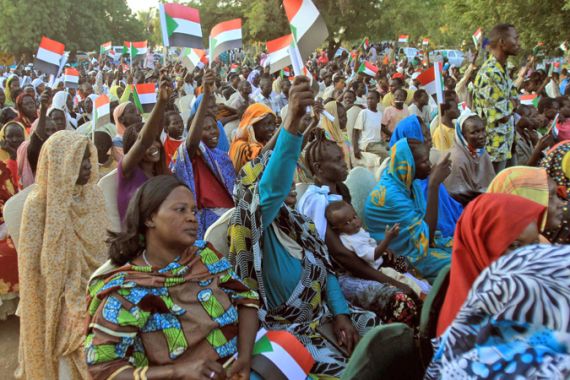Sudan: Between the North and South
The upcoming referendum in South Sudan may have massive implications for Africa and the world.

 |
| The future of Sudan hangs in the balance [EPA] |
In Sudan, the largest country in Africa, almost three million people have registered to vote in the upcoming January 2011 referendum that will decide if the country splits into two.
While most analysts expect the south to break away, the real concern is whether this can, and will, be managed peacefully.
The vote is a key part of the 2005 Comprehensive Peace Agreement (CPA) that ended Africa’s longest-running civil war, in which an estimated two million people were killed.
The North-South Sudan conflict dates back to Sudan’s independence.
Under British occupation South and North Sudan were effectively administered separately. The British also made it illegal for Sudanese living in the North of the country to travel too far South. The same applied to Sudanese living in the south who wished to travel north.
When the country gained independence in 1955 both the Northern and Southern parts of the country were clumped together without resolving or addressing the most important political and geographical issues.
Two civil wars devastated the country – the first from 1955-72 and then again from 1983-2005.
Comprehensive Peace Agreement
It was against this backdrop that the 2005 CPA decided that a referendum should take place to decide the future of South Sudan.
Since the CPA agreement – and in apprehension of the referendum – relations between the North and South have been relatively stable, a vote to split will raise many issues that could threaten this.
Where will the borders of the new state fall and what effect could it have for those living on such future boundaries? Residents in the oil-rich Abyei region, which sits on the likely border between North and South Sudan, will vote on independence in a separate referendum.
Will the oil in the South be a reason for conflict, or will the pipeline through the North remain as a mutually beneficial link between two independent states?
Most of the country’s oil lies in the South, although the North has the refineries, pipelines and Port Sudan, the only commercial outlet to the Red Sea and crucial overseas markets.
What fate lies in store for Southerners who fled during the decades of conflict and are now settled in the North? A sizable number of Southerners now living in the North have said that were happy there and did not plan on voting.